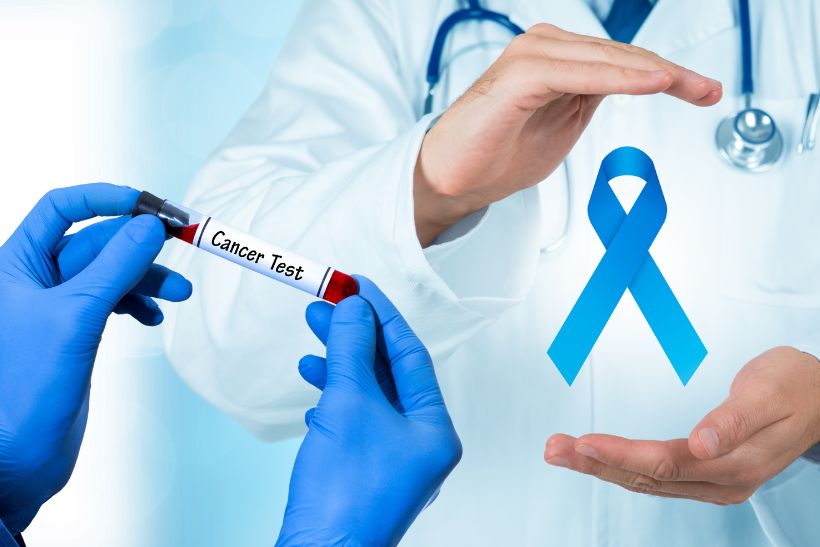Is Blood in Your Urine a Warning Sign of Cancer?

Noticing blood in the urine can be unsettling—it will scare anybody when they see red where there should be yellow. While it’s natural to feel worried, blood in the urine, known as hematuria, doesn’t always mean cancer. However, it’s important to know when to take action, as sometimes it could be a sign of something more serious. So, what’s the real story behind this common but scary symptom?
Common Causes of Blood in Urine
First, let’s set the record straight: blood in your urine can result from many things besides cancer. Some common causes include:
- Urinary Tract Infections (UTIs): UTIs can cause irritation in the urinary tract, leading to a bit of blood.
- Kidney Stones: These small but mighty stones can irritate the kidney and urinary tract, causing visible blood.
- Intense Physical Activity: Yes, intense workouts can sometimes lead to blood in the urine, especially if you’ve been pushing yourself a little too hard.
While these are common, self-limiting issues, seeing blood in your urine should never be ignored. Even if the cause isn’t serious, it’s a sign that something’s off and worth checking out.
When to Worry: Hematuria as a Potential Cancer Symptom
In some cases, blood in the urine can be an early warning sign of kidney or bladder cancer. According to health experts, “While not all hematuria cases are linked to cancer, it’s wise to rule out all possibilities, especially for those with risk factors.”
Risk Factors That May Increase Concern
Certain factors might make hematuria more concerning for you. These include:
- Age: Blood in the urine is more likely to signal cancer in people over 50.
- Family History: If there’s a family history of kidney or bladder cancer, it’s best to be extra cautious.
- Smoking: Smoking is a major risk factor for bladder cancer and can increase the likelihood of seeing blood in your urine.
- Occupational Exposure: Chemicals in specific industries, like rubber or dye manufacturing, have been linked to higher rates of bladder cancer.
Types of Hematuria
There are two main types of hematuria:
- Visible (Gross Hematuria): Blood that’s visible to the naked eye, turning your urine pink, red, or even brown.
- Microscopic Hematuria: Blood is only visible under a microscope and is often found during routine tests.
Both types can signal potential issues, but visible blood is typically a more obvious reason to visit a doctor for an evaluation.
What Happens During a Check-Up?
When you visit your doctor with hematuria, expect a thorough check-up. They may ask for:
- Urine Tests: To detect infections or blood traces.
- Imaging Tests: An ultrasound or CT scan can help look for kidney stones or abnormalities.
- Cystoscopy: A closer examination of the bladder to detect any abnormalities.
If there’s any suspicion of cancer, your healthcare provider might refer you for uro oncology treatment to investigate further. Early diagnosis can make a great difference in treatment success rates, so don’t delay seeking help.
If you are looking for uro oncology treatment in Indore, book a consultation with Dr. Saurabh Chipde, our expert.
Preventive Measures and Staying Proactive
While we can’t control all health factors, certain lifestyle choices may help reduce cancer risks:
- Quit Smoking: This one’s a biggie. Avoiding smoking can lower your risk of bladder and kidney cancers.
- Stay Hydrated: Drinking plenty of water may dilute cancer-causing substances in the urine, promoting kidney health.
- Limit Harmful Chemical Exposure: If your job involves potential carcinogens, following safety guidelines can help lower your risk.
Staying on Top of Your Health
Blood in the urine can be caused by a range of conditions, from mild to serious. Whether it’s a UTI or a more severe condition, it’s always worth getting checked out. If you or a loved one has a family history of cancer or any of the risk factors mentioned, regular check-ups are a wise choice.
Hematuria can be startling, but it doesn’t have to be a reason for panic. Taking quick action by talking to a healthcare professional, and staying proactive will keep you on the right track toward good health.
Don’t ignore those signs your body might be sending. Schedule a consultation with Dr. Saurabh Chipde for uro oncology treatment.
